If you've ever faced issues with a legal service and felt frustrated by the lack of resolution, you're not alone. Many individuals find themselves in a similar predicament, unsure of how to articulate their concerns effectively. This article will guide you through crafting a compelling letter that addresses your legal service complaint with clarity and professionalism. Ready to learn the steps to take your concerns to the next level? Let's dive in!
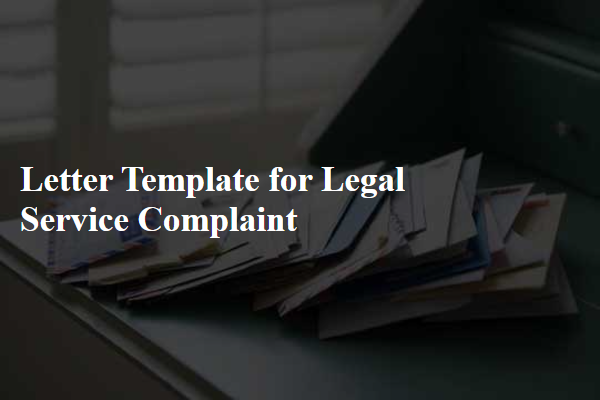
Clear Identification of Parties Involved
A clear identification of the parties involved in a legal service complaint is essential for establishing the context and accountability of the situation. For example, the complainant may be John Doe, a 35-year-old resident of Springfield, who engaged the services of XYZ Law Firm, located at 123 Main St, Springfield, on January 15, 2023, regarding a personal injury case. The necessary details should include the full names of both parties, their titles or roles (e.g., attorney, client), and their contact information, including phone numbers and email addresses. Additionally, include specifics of the agreement, such as the case type, date of service, and any relevant case numbers to provide clear reference for the complaint. A complete identification of all involved entities enhances the clarity and effectiveness of the legal complaint process.
Detailed Account of Incident or Issue
In a recent incident, the client experienced a significant breach of trust with a legal service provider, specifically Smith & Associates Law Firm located in New York City. On March 15, 2023, during a scheduled consultation, the attorney failed to provide required documentation related to the ongoing case, which involved a contentious property dispute valued at approximately $500,000. The lack of communication regarding important deadlines led to missed filing dates, exacerbating the legal situation and risking potential penalties. Furthermore, the client discovered discrepancies in billing statements, totaling over $2,000, with charges for services not rendered. This compounded the client's frustration and loss of confidence in the ability of Smith & Associates to handle their case effectively. Continued unresponsiveness from the firm's office over a period of two weeks further demonstrated a lack of professionalism and commitment to client care.
Specific Legal Violations or Breaches
Clients often need to address serious concerns about legal service violations, which can stem from negligence, misconduct, or fraud by attorneys or firms. Common legal breaches may include failure to communicate important case developments, inadequate representation during court proceedings, or mishandling of client funds. For instance, a client might experience misappropriation of retained fees, where attorneys unlawfully use client payments for personal expenses. Marginalized groups, especially, might face discrimination or lack of advocacy, highlighting systemic issues within the legal system. Specific incidents may occur in high-stakes environments such as family court or criminal defense, where the stakes are significant, and outcomes can dramatically affect clients' lives. These violations demand formal complaints to regulatory bodies, aiming to uphold justice and accountability in legal practice.
Documentation and Evidence Support
Legal service complaints often require detailed documentation and evidence to substantiate claims. A comprehensive record of interactions, timelines, and agreements is essential for effective resolution. Important evidence includes written correspondence, such as emails or letters exchanged with the legal service provider, documented meeting notes outlining discussions and agreements, and receipts for any paid services. Additionally, recording specific instances of inadequate service, like missed deadlines or negligence, strengthens the complaint. Evidence must be organized chronologically, clearly labeled, and referenced effectively within the complaint to ensure clarity for the reviewing authority. Creating a thorough case file provides a solid foundation for pursuing the complaint further, whether through mediation, arbitration, or legal action.
Desired Resolution or Action
Filing a complaint against a legal service provider is an essential process for ensuring accountability. Clear definition of desired resolution is necessary for an effective complaint. For example, one may seek a full refund of service fees (ranging from $500 to $5,000) paid due to unsatisfactory representation in a family law case in Los Angeles County, California. Additionally, requesting a formal apology that acknowledges the service lapses can help restore trust. One might also seek a reassignment to a different attorney specializing in the appropriate area of law, such as criminal defense, or demand changes in internal processes to prevent future issues. Documentation, such as invoices and correspondence, is crucial to support claims and facilitate resolution.
Letter Template For Legal Service Complaint Samples
Letter template of concern over lack of communication from legal counsel.
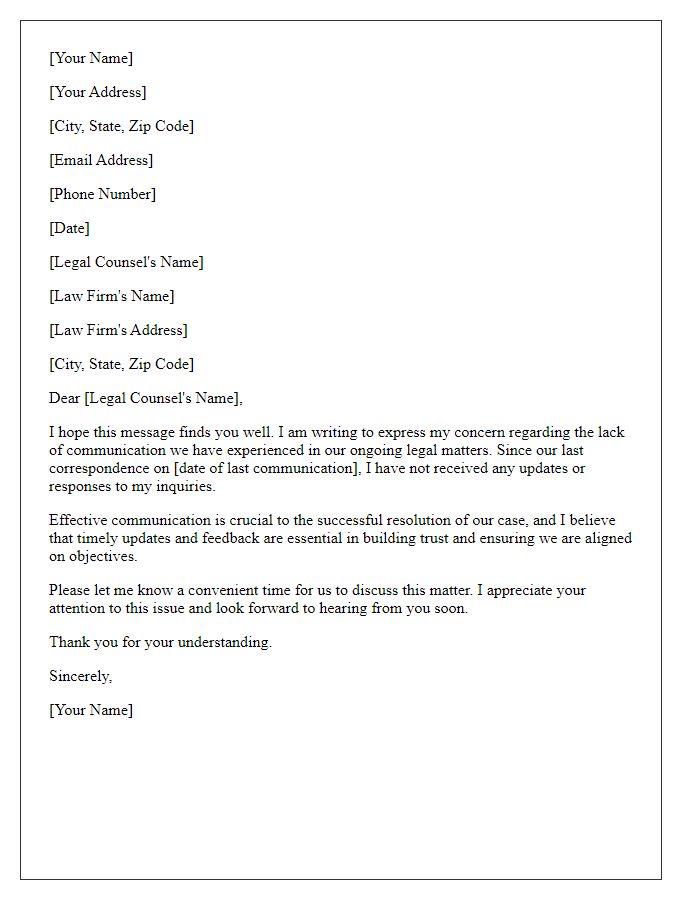

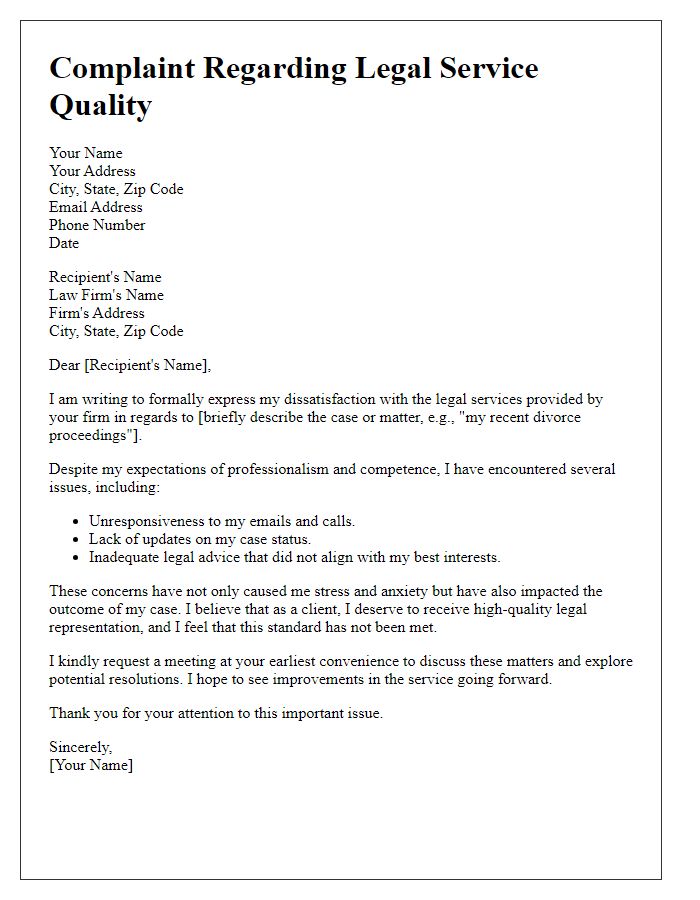
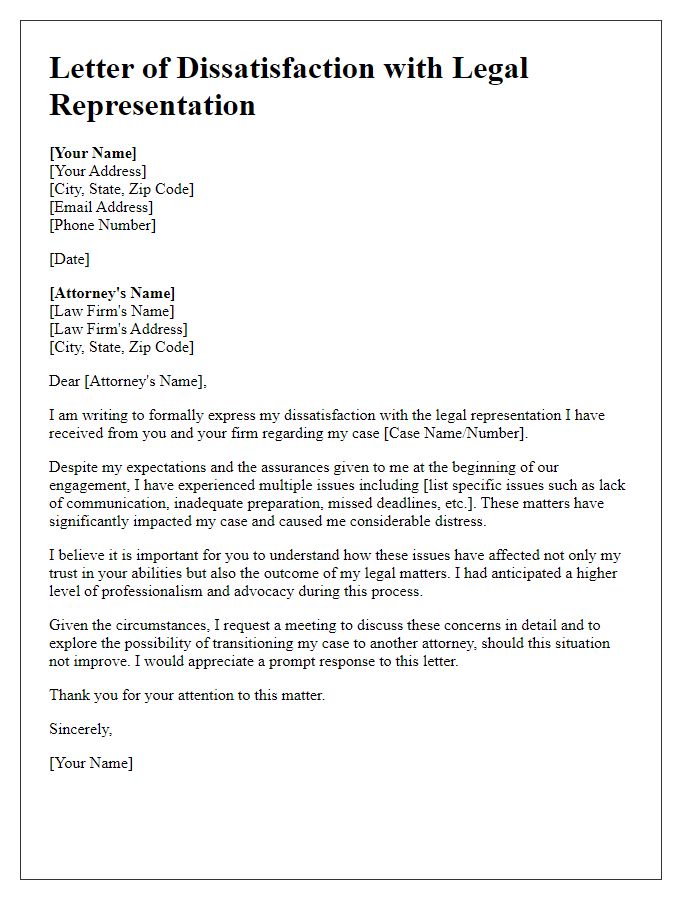
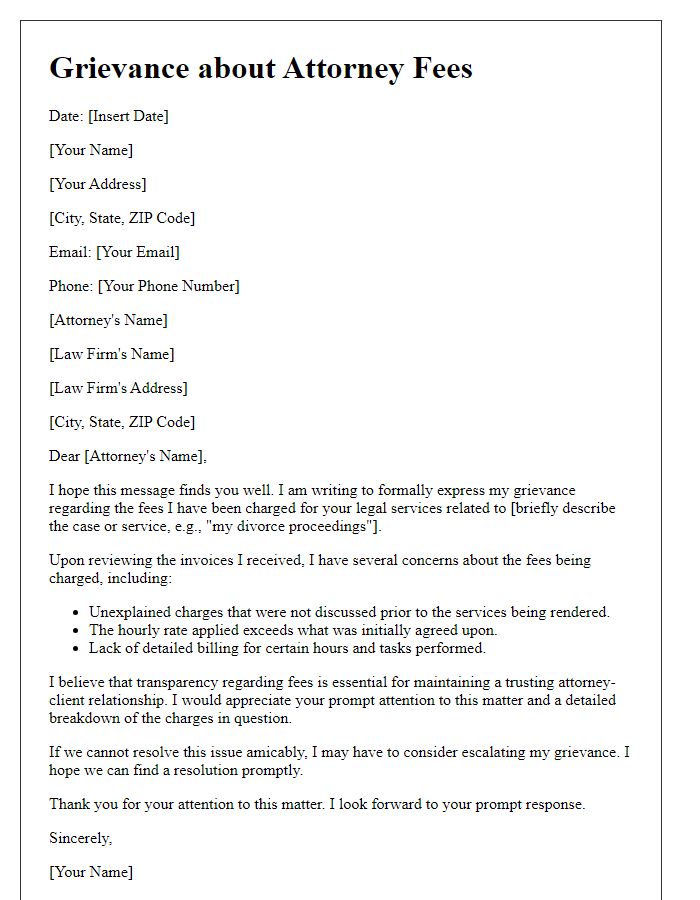
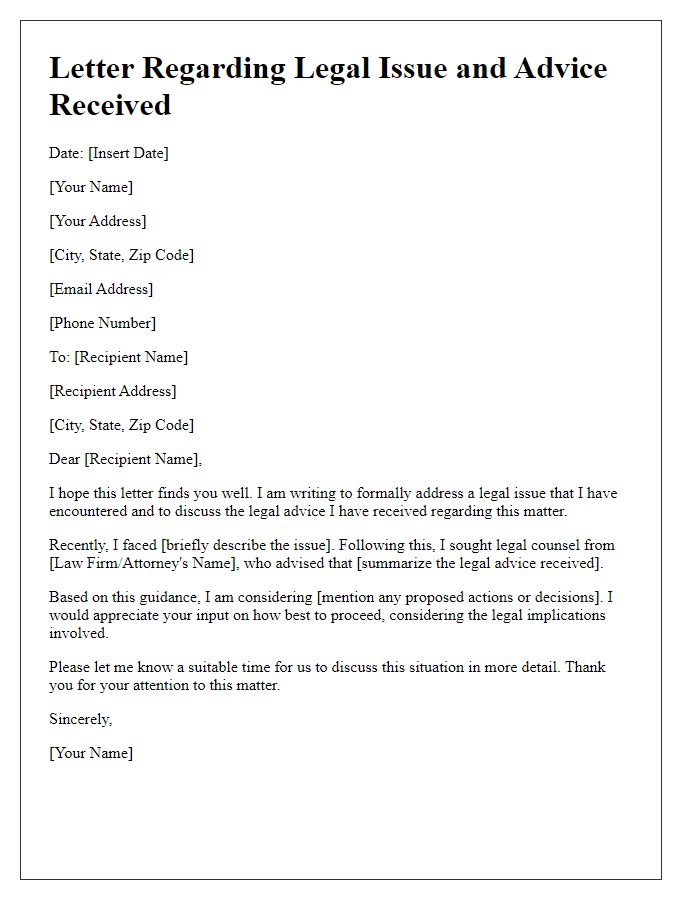
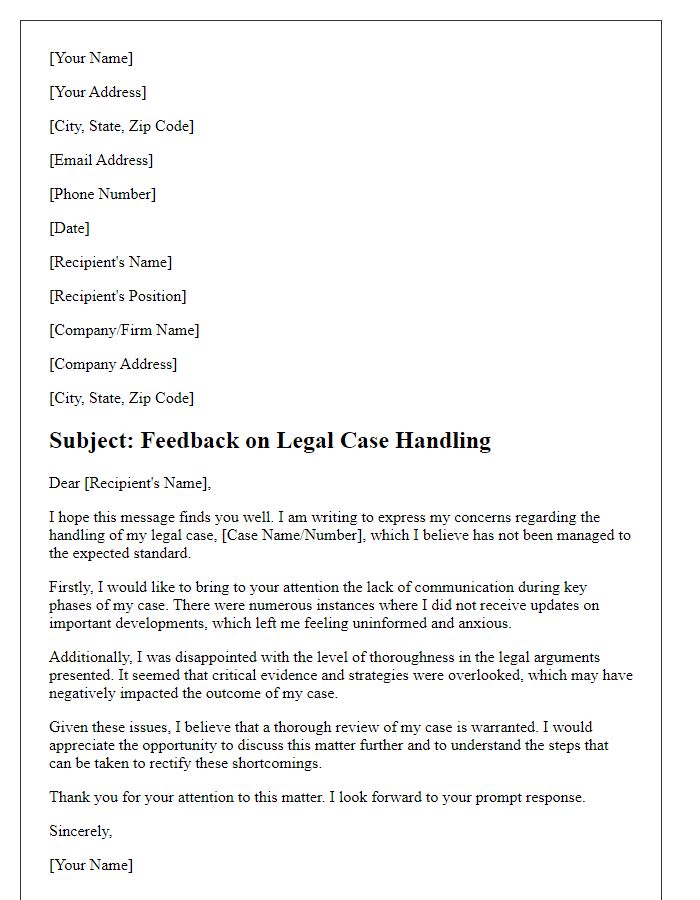
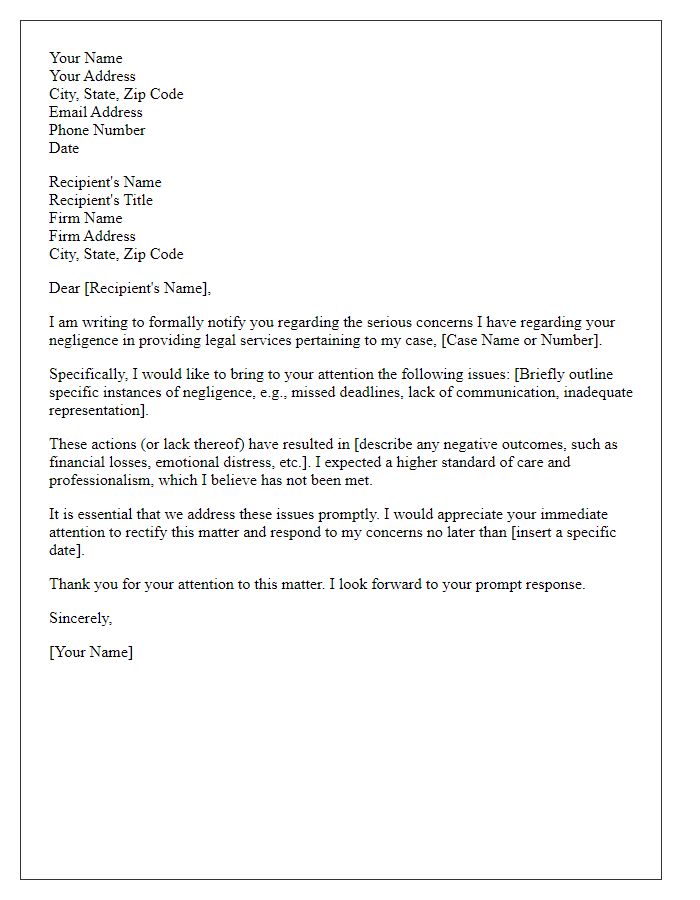
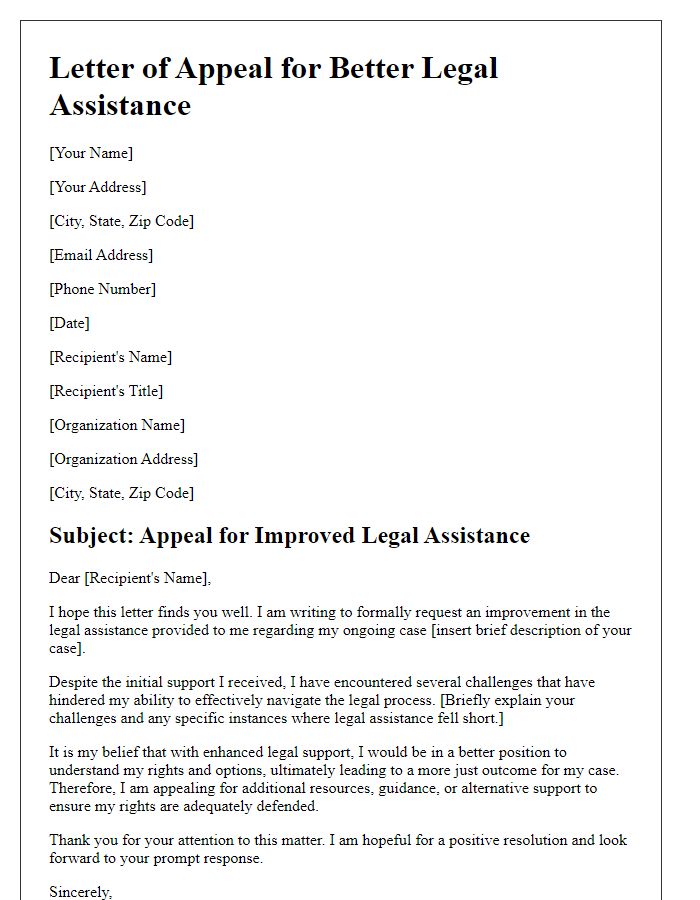
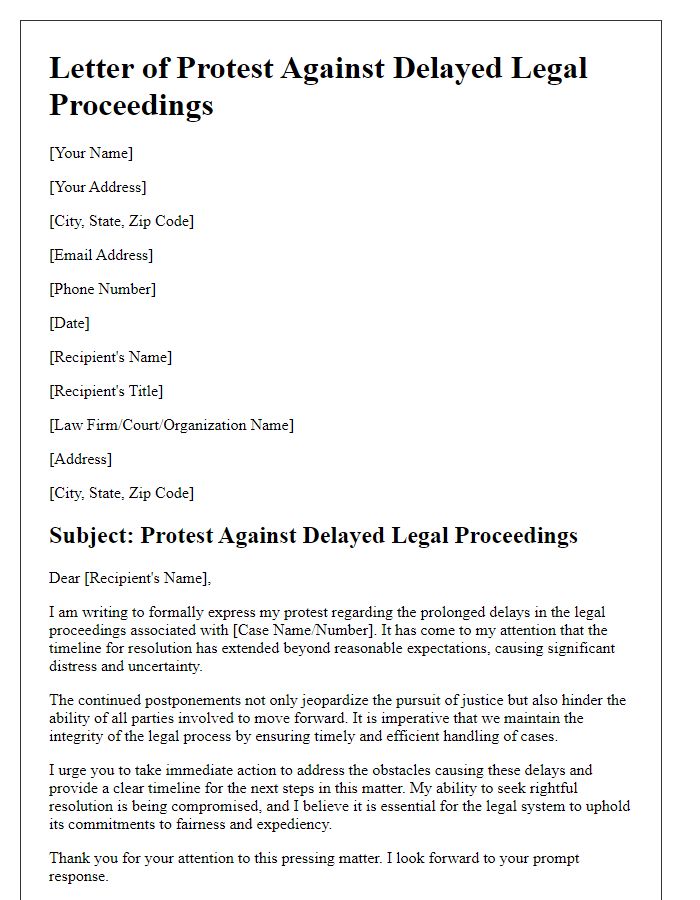
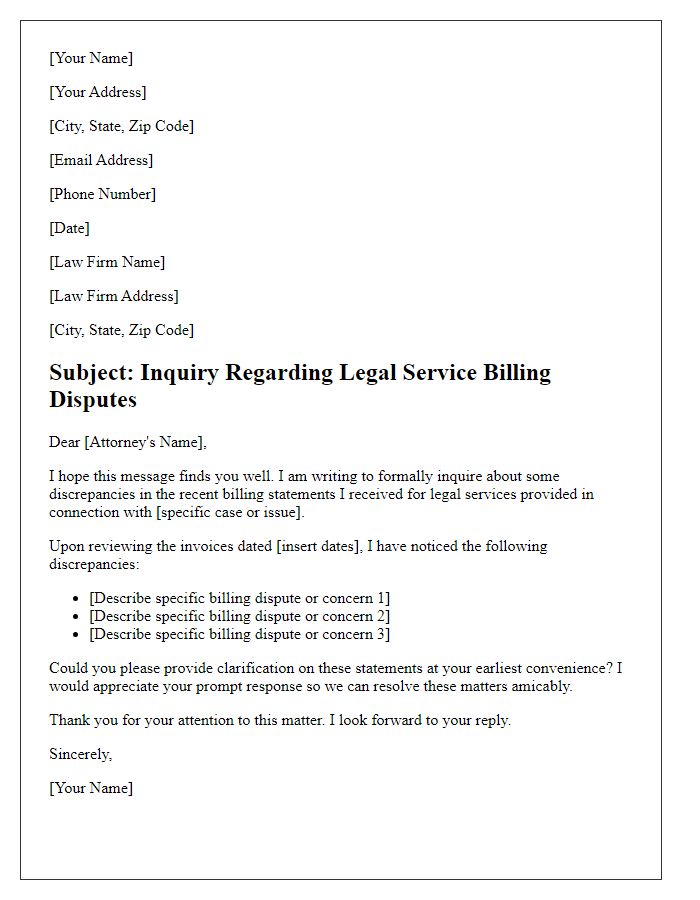

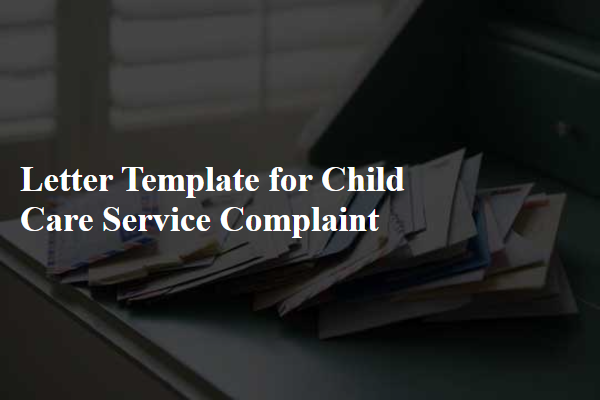
Comments